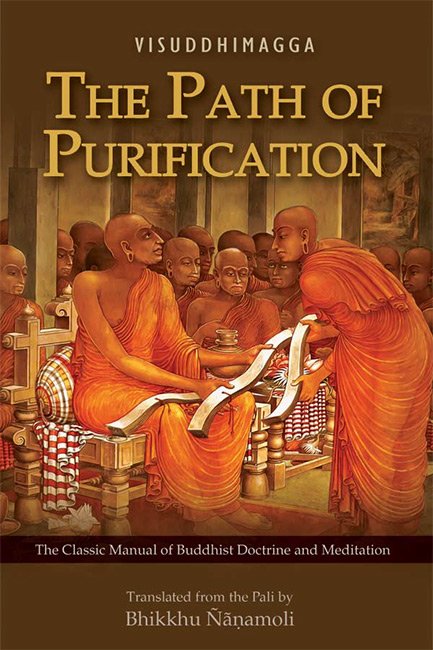Visuddhimagga (the pah of purification)
by Ñāṇamoli Bhikkhu | 1956 | 388,207 words | ISBN-10: 9552400236 | ISBN-13: 9789552400236
This page describes Dependent Origination (i): Ignorance of the section Dependent Origination (paññā-bhūmi-niddesa) of Part 3 Understanding (Paññā) of the English translation of the Visuddhimagga (‘the path of purification’) which represents a detailled Buddhist meditation manual, covering all the essential teachings of Buddha as taught in the Pali Tipitaka. It was compiled Buddhaghosa around the 5th Century.
Dependent Origination (i): Ignorance
[Full title: B. Exposition of Dependent Origination (III): Detailed Exposition (i): Ignorance]
According to the Suttanta method [530] ignorance is unknowing about the four instances beginning with suffering. According to the Abhidhamma method it is unknowing about the eight instances [that is to say, the above-mentioned four] together with [the four] beginning with the past; for this is said: “Herein, what is ignorance? It is unknowing about suffering, [unknowing about the origin of suffering, unknowing about the cessation of suffering, unknowing about the way leading to the cessation of suffering], unknowing about the past, unknowing about the future, unknowing about the past and future, unknowing about specific conditionality and conditionally-arisen states” (cf. Dhs §1162).
59. Herein, while ignorance about any instance that is not the two supramundane truths can also arise as object (see §102), nevertheless here it is only intended [subjectively] as concealment. For when [thus] arisen it keeps the truth of suffering concealed, preventing penetration of the true individual function and characteristic of that truth. Likewise, origin, cessation, and the path, bygone five aggregates called the past, coming five aggregates called the future, both of these together called the past and future, and both specific conditionality and conditionally-arisen states together called specific conditionality and conditionally-arisen states—all of which it keeps concealed, preventing their true individual functions and characteristics being penetrated thus: “This is ignorance, these are formations.” That is why it is said, “It is unknowing about suffering … unknowing about specific conditionality and conditionally-arisen states.”
